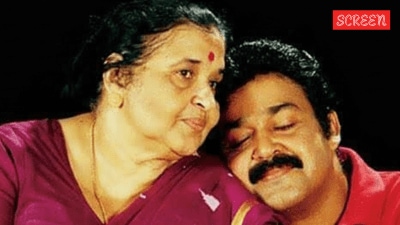Congress diaspora
Jitendra Prasadaacirc;euro;trade;s final strike may turn out to be his most pointed yet. Just a day before the Congress' organisational...

Jitendra Prasadaacirc;euro;trade;s final strike may turn out to be his most pointed yet. Just a day before the Congress8217; organisational polls, Sonia Gandhi8217;s challenger unleashed an elaborate eight-point programme for the party8217;s revival. Not all the mostly unexceptionable prescriptions on a host of issues, however, could blunt the edge of the real point of it all. quot;All those who share the Congress ideology and have been part of the Congress stream should be brought together to fight unitedly against divisive and sectarian forcesquot; it read. It does not take any special powers of deconstruction to figure out that the canny Jiti babu is not alluding to Mamata Banerjee8217;s Trinamool Congress or to Moopanar8217;s Tamil Maanila Congress here. Jitendra Prasada is obviously referring to Sharad Pawar and company 8212; the troika expelled from the party last year after making an issue of Sonia Gandhi8217;s foreign origins. Though even his most optimistic supporters may refrain from betting on Prasada in the party polls, the presidential wannabe8217;sfinal flourish has announced that he has weapons more devastating than quot;inner party democracyquot; in his arsenal.
Prasada8217;s call to Congress prodigals to come back home may be as lacking in authenticity as his posturing on inner party democracy. It may be guided only by his personal pique, not the interests of his party. Some may even read in it a clue to the identity of his backers in his campaign against Sonia Gandhi 8212; it has been rumoured that Prasada may not be doing it all on his own, and that the lightweight UP factotum is a front for more heavyweight interests. But Prasada may have inadvertently made a larger point. If it could just set aside for a minute the fact that it is Prasada who has made it, the Congress leadership would probably do well to look at Prasada8217;s suggestion again. There can be no doubt that the Congress has never seemed weaker than it has in recent times. It is also true that to a large extent this is because its splinters have carried away with them much of the parent party8217;s electoral base. In West Bengal, Mamata Banerjee8217;s Trinamool Congress has weaned away a huge block of the Congress8217;traditional vote bank in the state. Though it may not have triggered the all-India exodus it boasted of, Sharad Pawar8217;s Nationalist Congress Party did cause a vertical split in the party8217;s Maharashtra unit. In all, the splintering of the Congress has contributed in no small measure to the Congress being reduced to a travesty of itself. In this scenario, wouldn8217;t the Congress be a better party, and a far more effective opposition to the bumbling government at the Centre, if only it could be one big happy family again?
Having posed the question, however, Congress leaders would also run up against its futility. Given the arrogance and insecurity of its high command and its complete lack of accommodation or political vision, given also the stranglehold of a few backroom managers over the party apparatus, it is impossible to envision the Congress wooing back its rebels. It can only strike up opportunistic alliances with them, as with the NCP in Maharashtra. In venting his personal animus against Sonia Gandhi, Prasada may have unintentionally articulated the most trenchant critique of his party yet.
- 01
- 02
- 03
- 04
- 05































